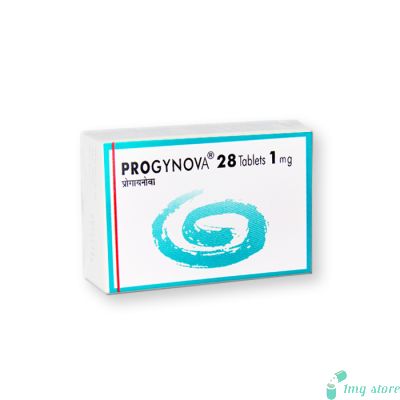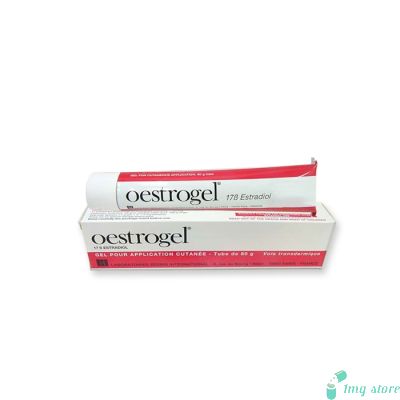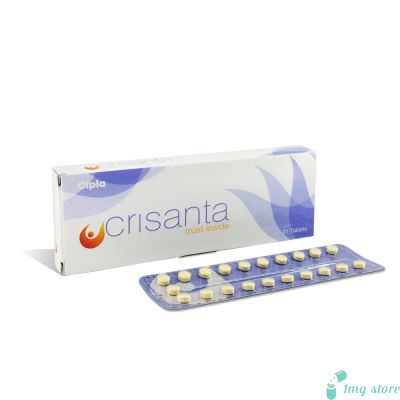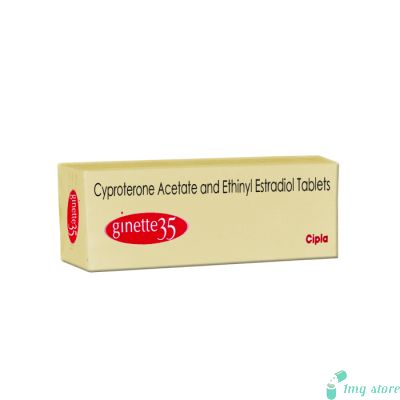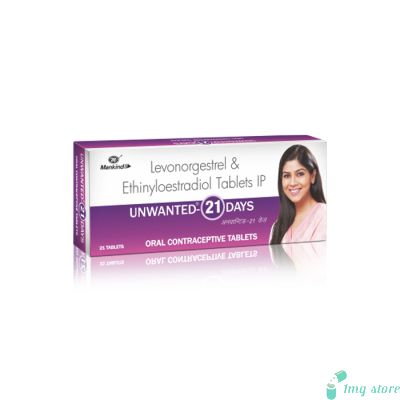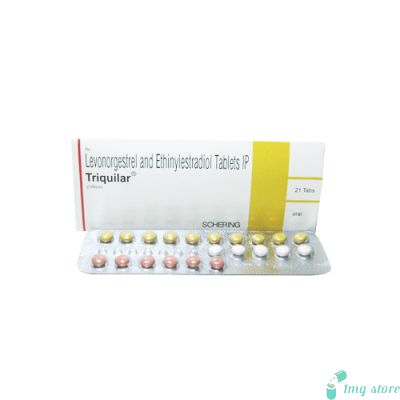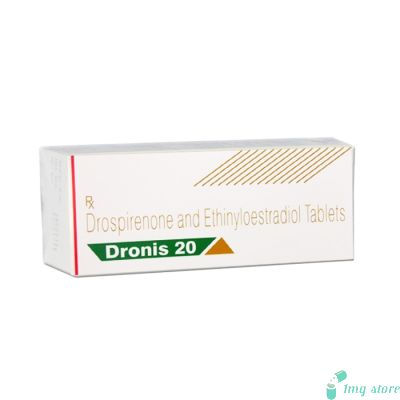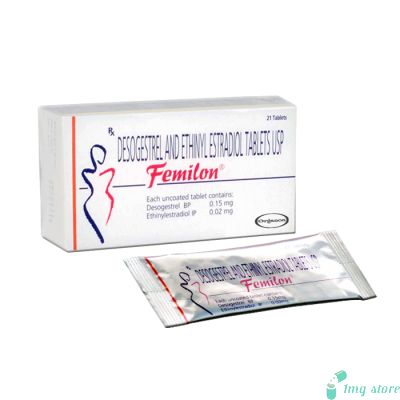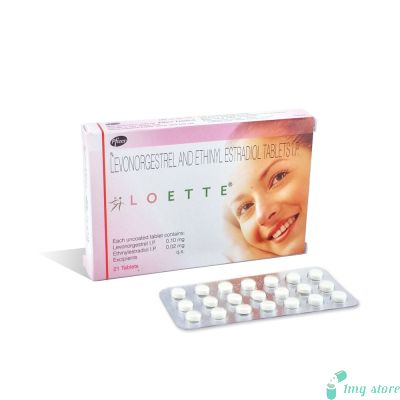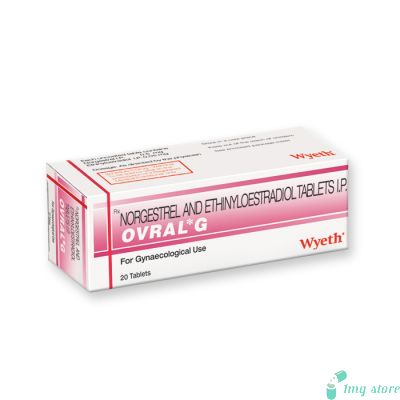Evadiol Tablet (Estradiol)
Evadiol Tablet is a medication that contains the female sex hormone estrogen. It is classified as a form of hormone replacement therapy (HRT) and is primarily used to alleviate symptoms associated with menopause. These symptoms may include hot flashes, vaginal dryness, and itching. Additionally, Estrace Tablet is prescribed to address estrogen deficiency and to help prevent or treat the thinning of bones, known as osteoporosis.
Estradiol, which is a commonly prescribed medication. Estradiol is a form of the hormone estrogen, which is primarily responsible for the development and regulation of the female reproductive system. It is also present, although in smaller amounts, in males. It is also sold under the brand name Estrace.
Estradiol is available in various forms, including tablets, patches, gels, creams, and injections. It is commonly used for hormone replacement therapy (HRT) in menopausal women to alleviate symptoms such as hot flashes, vaginal dryness, and mood changes. It can also be prescribed to treat certain conditions related to estrogen deficiency, such as osteoporosis.
Estradiol works by binding to estrogen receptors in the body, which can have effects on various tissues and organs. It is important to note that the use of estradiol may have potential risks and side effects, and it should only be taken under the guidance and prescription of a healthcare professional. One of the most common forms of estrogen is Estrogen cream a topical medication that contains estrogen hormones, specifically estradiol, which is the most common form of estrogen. It is applied directly to the skin and is absorbed into the bloodstream to provide systemic estrogen therapy. Estrogen cream is commonly prescribed to alleviate symptoms of menopause, such as hot flashes, vaginal dryness, and itching.
If you have a specific medication name or brand, it would be helpful to provide more details so that I can provide you with more accurate information.
Benefits of using Estrace Tablet (Estradiol)
Menopausal relief: Estradiol is often prescribed to alleviate symptoms associated with menopause, such as hot flashes, night sweats, vaginal dryness, and mood swings. It can help improve quality of life by reducing the intensity and frequency of these symptoms.
Vaginal dryness treatment: For postmenopausal women, estradiol can help restore moisture and elasticity to the vaginal tissues, reducing discomfort during intercourse and relieving vaginal dryness.
Osteoporosis prevention: Estrogen plays a vital role in maintaining bone density. Estradiol therapy may be prescribed to postmenopausal women at risk of osteoporosis to help slow down bone loss and reduce the risk of fractures.
Hormone deficiency treatment: In some cases, estradiol may be prescribed to individuals with hormone deficiencies or certain medical conditions that require hormonal supplementation.
It's important to note that the use of estradiol should be determined by a healthcare professional, who will assess individual needs, medical history, and potential risks before prescribing the medication. Estrogen therapy may have certain risks and side effects, so it's essential to discuss the benefits and potential drawbacks with a healthcare provider.
When taking estradiol tablets or any form of estradiol medication, it's important to be aware of certain precautions. Here are some general precautions to consider:
Medical history: Before taking estradiol, inform your healthcare provider about your complete medical history, including any past or present conditions such as breast cancer, uterine cancer, blood clots, liver disease, heart disease, or any unusual vaginal bleeding. This information will help your healthcare provider assess the risks and benefits of estradiol therapy for you.
Breast cancer and endometrial cancer: Estrace may increase the risk of developing breast cancer and endometrial cancer (cancer of the lining of the uterus). Discuss your personal and family history of these cancers with your healthcare provider, as it may influence the decision to use estradiol or consider alternative treatments.
Blood clots: Estrogen therapy, including estradiol, can increase the risk of developing blood clots. Inform your healthcare provider if you have a history of blood clots or if you are at increased risk due to conditions like obesity, smoking, or a family history of blood clots.
Cardiovascular health: Estrogen therapy may have an impact on cardiovascular health. Discuss any history of heart disease, high blood pressure, or cholesterol problems with your healthcare provider, as well as any symptoms such as chest pain, shortness of breath, or swelling in the legs, which may require additional monitoring during estradiol treatment.
Regular check-ups: It is important to have regular check-ups and follow-up appointments with your healthcare provider while taking estradiol. This allows for monitoring of your response to the medication and assessment of any potential side effects or complications.
Estradiol tablets have several uses in medical practice. Here are some common uses of estradiol tablets:
Hormone replacement therapy (HRT): Estradiol tablets are frequently prescribed as part of hormone replacement therapy for menopausal women. They help alleviate symptoms associated with menopause, such as hot flashes, night sweats, vaginal dryness, and mood swings. By providing supplemental estrogen, estradiol tablets can help restore hormonal balance and improve quality of life during menopause.
Postmenopausal osteoporosis prevention and treatment: Estrogen plays a crucial role in maintaining bone density. Estradiol tablets can be prescribed to postmenopausal women at risk of osteoporosis to help slow down bone loss and reduce the risk of fractures. However, the use of estradiol for osteoporosis should be evaluated on an individual basis, considering the woman's overall health and the presence of other risk factors.
Hypogonadism treatment: Estrace tablets can be used in the treatment of hypogonadism, a condition characterized by reduced or absent hormone production in the gonads. In certain cases, such as primary ovarian failure, estradiol replacement therapy may be initiated to provide the necessary estrogen levels for normal physiological function.
Transgender hormone therapy: Estradiol tablets are also used in transgender hormone therapy for individuals assigned male at birth who are transitioning to female. By introducing exogenous estradiol, it can help induce the development of feminine secondary sexual characteristics, such as breast growth and redistribution of body fat.
Certain menstrual disorders: In some cases, estradiol tablets may be prescribed to regulate the menstrual cycle and address certain menstrual disorders, such as irregular periods or absence of menstruation (amenorrhea). However, the use of estradiol for menstrual disorders should be determined by a healthcare professional after evaluating the underlying cause.
Estradiol tablets, like any medication, can have side effects. It's important to be aware of potential side effects and to discuss them with your healthcare provider. Here are some common side effects associated with estradiol tablets:
Breast tenderness: Some individuals may experience breast tenderness or swelling while taking estradiol tablets. This side effect is usually temporary and tends to resolve on its own.
Headache: Headaches can occur as a side effect of estradiol therapy. If headaches become severe or persistent, it's important to inform your healthcare provider.
Nausea: Nausea is a possible side effect of Estrace tablets. Taking the medication with food or at bedtime may help reduce this symptom. If severe or prolonged nausea occurs, contact your healthcare provider.
Vaginal bleeding or spotting: Estradiol tablets can sometimes cause vaginal bleeding or spotting, especially during the first few months of treatment. If you experience heavy or persistent bleeding, it's important to consult your healthcare provider.
Mood changes: Some individuals may experience mood swings or changes in mood while taking estradiol tablets. If you notice significant changes in mood, such as increased anxiety or depression, it's important to discuss it with your healthcare provider.
Bloating or fluid retention: Estradiol tablets can cause bloating or fluid retention, leading to temporary weight gain or swelling in the hands, feet, or ankles.
Other potential side effects: Additional side effects may include changes in libido (sex drive), dizziness, skin rash or irritation, gastrointestinal upset, and changes in appetite.
It's important to note that not everyone will experience these side effects, and some individuals may have a different response to the medication. If you have concerns about any potential side effects or if you experience severe or persistent symptoms, it's important to contact your healthcare provider for guidance and further evaluation.
Remember, this list does not cover all possible side effects. Your healthcare provider can provide you with more comprehensive information based on your specific situation and medical history.
Q: What is estradiol?
A: Estradiol is a form of the hormone estrogen, which is primarily responsible for the development and regulation of the female reproductive system. It is also present, although in smaller amounts, in males.
Q: What are estradiol tablets used for?
A: Estradiol tablets are commonly used in hormone replacement therapy (HRT) for menopausal women to alleviate symptoms such as hot flashes, vaginal dryness, and mood changes. They can also be prescribed to treat certain conditions related to estrogen deficiency, such as osteoporosis.
Q: How should I take estradiol tablets?
A: It's important to follow the instructions provided by your healthcare provider and the medication's packaging. Typically, estradiol tablets are taken orally with or without food. The dosage and frequency will be determined by your healthcare provider based on your specific needs.
Q: How long does it take for estradiol tablets to work?
A: The timeframe for estradiol tablets to take effect can vary. Some women may experience relief from menopausal symptoms within a few weeks of starting treatment, while others may require a longer duration. It's important to discuss your expectations and progress with your healthcare provider.
Q: Can I use Estrace tablets during pregnancy or while breastfeeding?
A: Estrace (Estradiol) tablets are generally not recommended during pregnancy. If you are pregnant or planning to become pregnant, it's important to discuss the use of estradiol or any other medication with your healthcare provider. The use of estradiol while breastfeeding should also be discussed with a healthcare provider, as it may pass into breast milk and potentially affect the nursing infant.
When taking any medication, including estradiol tablets, it's important to be aware of potential drug interactions. Drug interactions can occur when two or more medications interact with each other, affecting their effectiveness or causing unexpected side effects. Here are some common drug interactions to be mindful of when taking estradiol:
Blood thinners (Anticoagulants): Medications such as warfarin or heparin that are used to prevent blood clots may interact with estradiol, increasing the risk of bleeding. Regular monitoring of blood clotting parameters may be necessary if you are taking both types of medications concurrently.
Aromatase inhibitors: Aromatase inhibitors, commonly used in the treatment of breast cancer, may interfere with the effectiveness of estradiol therapy. The combination of these medications may diminish the intended benefits of either drug.
Hepatic enzyme inducers: Certain medications, such as rifampin, phenytoin, and carbamazepine, can increase the metabolism of estradiol in the liver, potentially reducing its effectiveness. Your healthcare provider may need to adjust the dosage of estradiol or consider alternative medications.
Grapefruit juice: Grapefruit juice can inhibit the breakdown of Estrace in the body, leading to increased levels of the medication. This can potentially increase the risk of side effects. It's advisable to avoid consuming grapefruit or grapefruit juice while taking estradiol.
Other medications: It's important to inform your healthcare provider about all the medications you are taking, including prescription medications, over-the-counter drugs, and supplements. Some medications, such as certain antifungal medications, antibiotics, or seizure medications, may interact with estradiol and require dosage adjustments or alternative treatments.
Remember, this list is not exhaustive, and there may be other medications that can interact with estradiol. Always consult your healthcare provider or pharmacist for personalized advice and to ensure the safe use of estradiol alongside other medications.
| Manufacturer | : | Intas Pharma, India |
| Equivalent Brand | : | Estrace |
| Generic Search | : | Estradiol |







